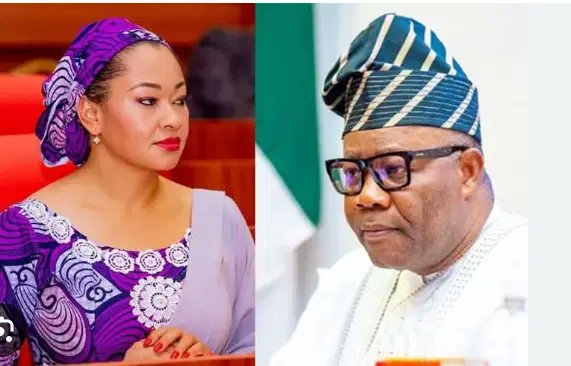Politics
Legal Muzzle: Senate President Akpabio, Natasha Akpoti Barred from Speaking on Controversial Case

A Federal High Court in Abuja has issued an order restraining Senate President Godswill Akpabio, Senator Natasha Akpoti-Uduaghan, and the Nigerian Senate from making public statements or granting interviews regarding an ongoing case involving allegations of misconduct. The ruling was delivered as part of a legal effort to prevent external influence on judicial proceedings.
The case, which has drawn significant public attention, involves allegations of procedural and ethical violations within the Senate. While specific details of the allegations have not been disclosed in court filings, the order aims to maintain the integrity of the judicial process by limiting public commentary from key figures. The court’s decision underscores the importance of avoiding any actions that could be seen as prejudicial to the case.
Justice James Omotosho, who presided over the hearing, emphasized that any public discussions by those directly involved in the case could affect fair trial proceedings. As a result, he granted the restraining order to prevent any potential interference with the administration of justice. The ruling affects Akpabio in his capacity as Senate President, Akpoti-Uduaghan as a senator, and the broader Senate as an institution.
The legal dispute stems from accusations that have been raised against certain members of the Senate, with some critics suggesting that internal power struggles may be at play. Observers note that the case could have broader implications for governance and legislative processes in Nigeria. However, until the court proceedings are concluded, all parties have been directed to refrain from making any public statements that could influence public perception.
Reactions to the court order have been mixed. Supporters of the decision argue that it is necessary to uphold due process and prevent trial by media, while critics see it as a move that could stifle transparency and public accountability. Some legal analysts have pointed out that while such orders are not uncommon in sensitive cases, they must be carefully balanced to avoid infringing on freedom of speech.
The Senate leadership has not yet issued an official response to the ruling, and it remains unclear whether there will be any legal challenges to the restriction. Meanwhile, political observers continue to monitor the situation closely, as the outcome of this case could have significant ramifications for the Nigerian Senate and its leadership.
As the court proceedings continue, the focus will remain on how the case unfolds and whether further legal actions will be taken by any of the affected parties. The judiciary has reiterated its commitment to handling the matter impartially, ensuring that all legal processes are followed appropriately.
